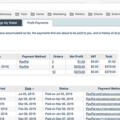Home equity rates expected to remain low in 2020
The presidential election occurring in late 2020 will be a boon to home equity borrowers, regardless of who wins, according to a forecast from Bankrate.
That’s because the Federal Reserve will try to sit on the sidelines this year to avoid the appearance of influencing the political process, said Greg McBride, Bankrate’s chief financial analyst. That would keep the U.S. prime rate at its current 19-month low, he said.
Home equity rates “would largely hold steady if the Federal Reserve isn’t changing interest rates,” he said.
The Fed has a direct impact on equity lending because the U.S. prime rate, the interest rate banks give their best customers, moves in tandem with the central bank’s benchmark rate. And, most home equity loans have variable rates indexed to the prime rate.
“It’s the best of times for home equity borrowers,” Bankrate’s forecast said. “Interest rates are super-low and the Federal Reserve, after cutting rates three times in 2019, has indicated that rate hikes are not on the horizon in 2020.”
U.S. homeowners are sitting on $6.2 trillion in untapped home equity, according to Black Knight.
“This could indicate that homeowners are being more cautious about borrowing home equity than they were before the Great Recession when many homeowners ended up owing more on their homes than they were worth,” Bankrate said in its forecast.
The average rate for a $30,000 home equity line of credit, or HELOC, was 6% in December, according to Bankrate. Lenders would express that as “prime plus 1.25%,” meaning the prime rate, currently 4.75%, plus the margin the lender is charging.
That’s much higher than the average rate for a 30-year fixed first-lien mortgage, which was 3.72% in December, according to Freddie Mac.
That difference has boosted the volume of so-called “cash-out refis,” refinanced loans with balances higher than the original mortgage. About $6.1 billion of HELOC debt was extinguished that way in the third quarter, the highest in almost two years, according to Freddie Mac data.






